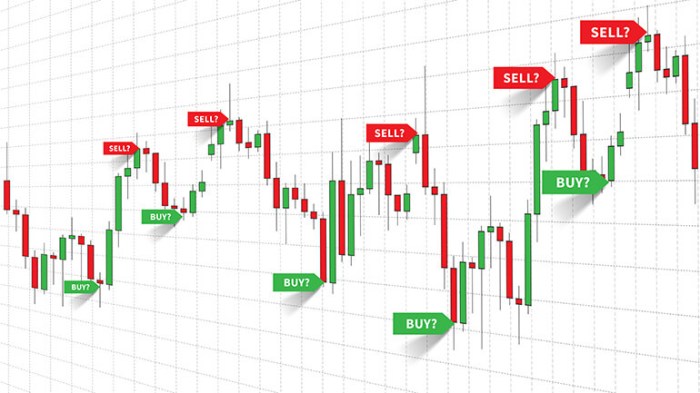In the ever-evolving world of Forex trading, Forex signals have emerged as a powerful tool for traders seeking to maximize their profits. These signals provide valuable insights into market trends and potential trading opportunities, empowering traders to make informed decisions and navigate the complexities of the currency markets.
Forex signals can provide valuable insights into potential market movements. By analyzing technical indicators and market trends, these signals can help traders make informed decisions.
While Forex signals can be a useful tool, it’s important to remember that they should be used in conjunction with other investment strategies, such as high-yield investments.
By diversifying your portfolio, you can reduce risk and increase your chances of long-term success. Forex signals can complement high-yield investments by providing short-term trading opportunities that can enhance your overall returns.
From understanding the different types of Forex signals to evaluating the credibility of providers, this comprehensive guide will delve into the intricacies of Forex signals, providing traders with the knowledge and strategies they need to harness their full potential.
Definition of Forex Signals

Forex signals are trading recommendations or suggestions that provide guidance to traders on potential trading opportunities in the foreign exchange (Forex) market.
These signals are generated by technical analysis, fundamental analysis, or a combination of both, and they aim to predict future price movements of currency pairs.
Forex signals serve as a valuable tool for traders, especially beginners, as they can help them make informed trading decisions and potentially improve their trading performance.
Types of Forex Signals
- Manual signals: These signals are generated by human analysts who manually analyze market data and provide trading recommendations based on their expertise.
- Automated signals: These signals are generated by computer algorithms that analyze market data and generate trading recommendations based on pre-defined rules and technical indicators.
Providers of Forex Signals
Forex signals are provided by a wide range of sources, including:
- Forex brokers: Many Forex brokers offer signal services as part of their trading platforms.
- Third-party providers: There are numerous independent companies that specialize in providing Forex signals to traders.
When choosing a Forex signal provider, it is important to consider their track record, credibility, and the methodology they use to generate signals.
Forex signals can provide valuable insights into the currency market, but they should be used with caution. If you’re looking for a more stable investment option, consider comparing real estate vs stocks.
Both have their own advantages and disadvantages, so it’s important to do your research before making a decision.
However, if you’re looking for a more volatile investment with the potential for higher returns, Forex signals may be a good option for you.
Using Forex Signals
To use Forex signals effectively, traders should:
- Understand the signal provider: It is crucial to research and understand the signal provider’s methodology, track record, and risk management approach.
- Test the signals: Before using signals in live trading, traders should test them on a demo account or using historical data to assess their accuracy and profitability.
- Manage risk: Traders should always implement proper risk management strategies, such as setting stop-loss orders and position sizing appropriately.
Advantages and Disadvantages of Forex Signals
| Advantages | Disadvantages |
|---|---|
| Provide trading guidance | Can be inaccurate |
| Can save time and effort | Can lead to over-reliance |
| Can improve trading performance | Can be expensive |
| Suitable for beginners | Not a substitute for education and experience |
Advanced Techniques for Forex Signals

Traders can employ advanced techniques to enhance the effectiveness of Forex signals:
- Signal filtering: Traders can use technical indicators or other criteria to filter out signals that do not meet certain conditions.
- Signal optimization: Traders can optimize signal parameters to improve their accuracy and profitability.
- Multiple signal analysis: Traders can combine signals from multiple sources to increase their confidence in trading decisions.
Ethical Considerations
Forex signals raise ethical concerns related to:
- Signal manipulation: Some signal providers may manipulate signals to benefit themselves or their clients.
- Abuse of insider information: Signal providers may have access to non-public information that they use to generate signals.
Traders should be aware of these ethical concerns and choose signal providers with a strong reputation and ethical practices.
Future Trends in Forex Signals
The future of Forex signals is likely to be influenced by:
- Artificial intelligence (AI): AI algorithms are expected to play a more significant role in generating and optimizing Forex signals.
- Big data analytics: The availability of vast amounts of market data will enable more sophisticated signal generation techniques.
- Blockchain technology: Blockchain can be used to enhance the transparency and security of Forex signals.
Final Conclusion
Forex signals, when used effectively, can significantly enhance a trader’s performance by providing timely market insights and reducing the risk of costly mistakes. However, it is crucial to approach Forex signals with caution, understanding their limitations and potential risks.
By embracing a disciplined approach and employing advanced techniques, traders can harness the power of Forex signals to achieve consistent success in the dynamic currency markets.
FAQ Resource: Forex Signals
What are Forex signals?
Forex signals are recommendations or suggestions provided by experienced traders or automated systems that indicate potential trading opportunities in the currency markets.
How can I use Forex signals effectively?
Forex signals can provide valuable insights into market movements, but it’s crucial to have the right tools to make the most of them. That’s where business software for startups comes in. With a comprehensive suite of features, these tools can streamline your operations, automate tasks, and provide data-driven insights.
By integrating Forex signals with the Best business software for startups , you can enhance your trading strategies and make informed decisions to maximize your profits.
To use Forex signals effectively, it is crucial to evaluate the credibility of the provider, understand the underlying trading strategy, and implement risk management measures.
What are the potential risks of using Forex signals?
Forex signals are not guaranteed to be accurate, and relying solely on them can lead to losses. It is essential to use signals as a supplement to your own analysis and trading strategy.




